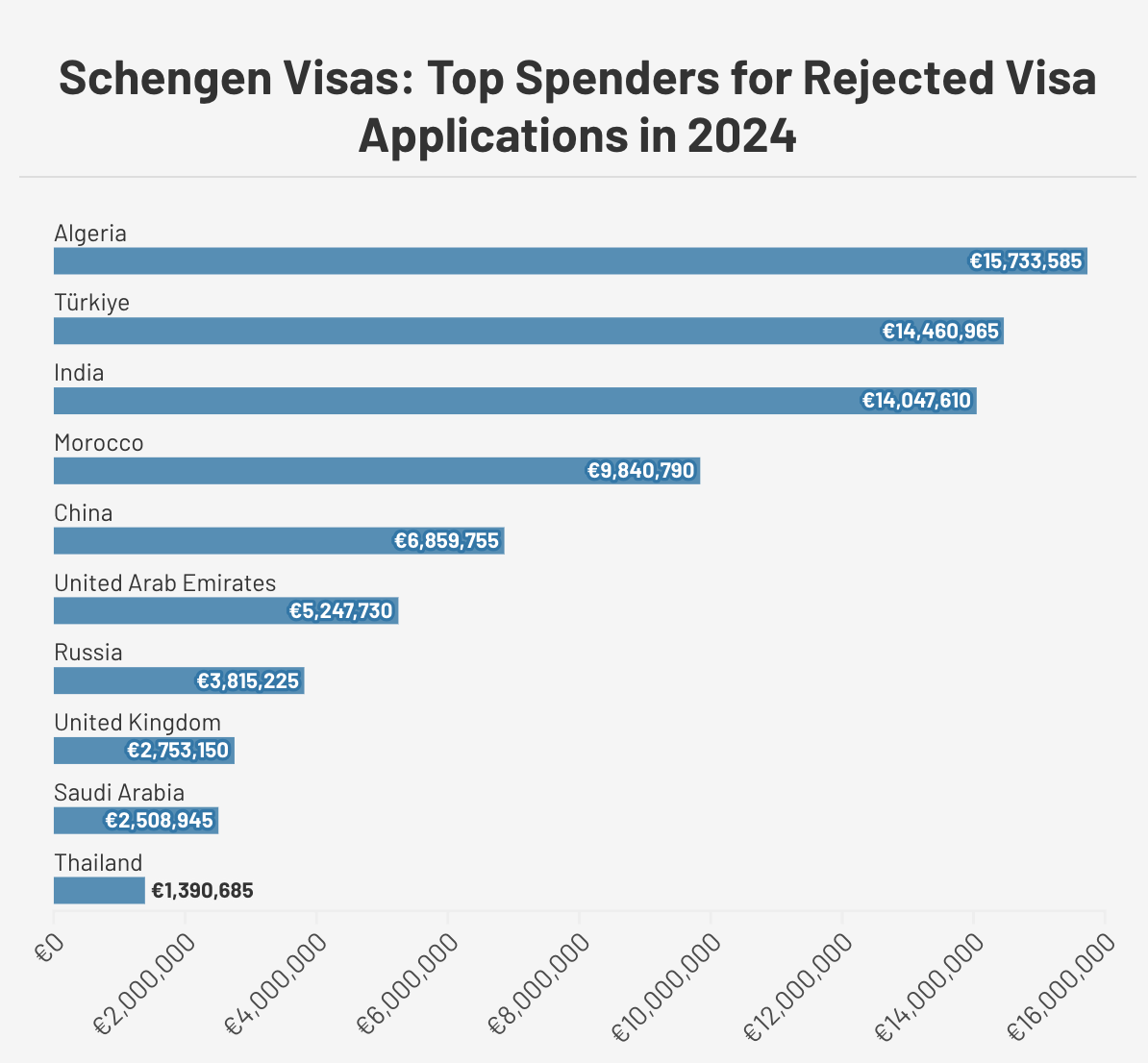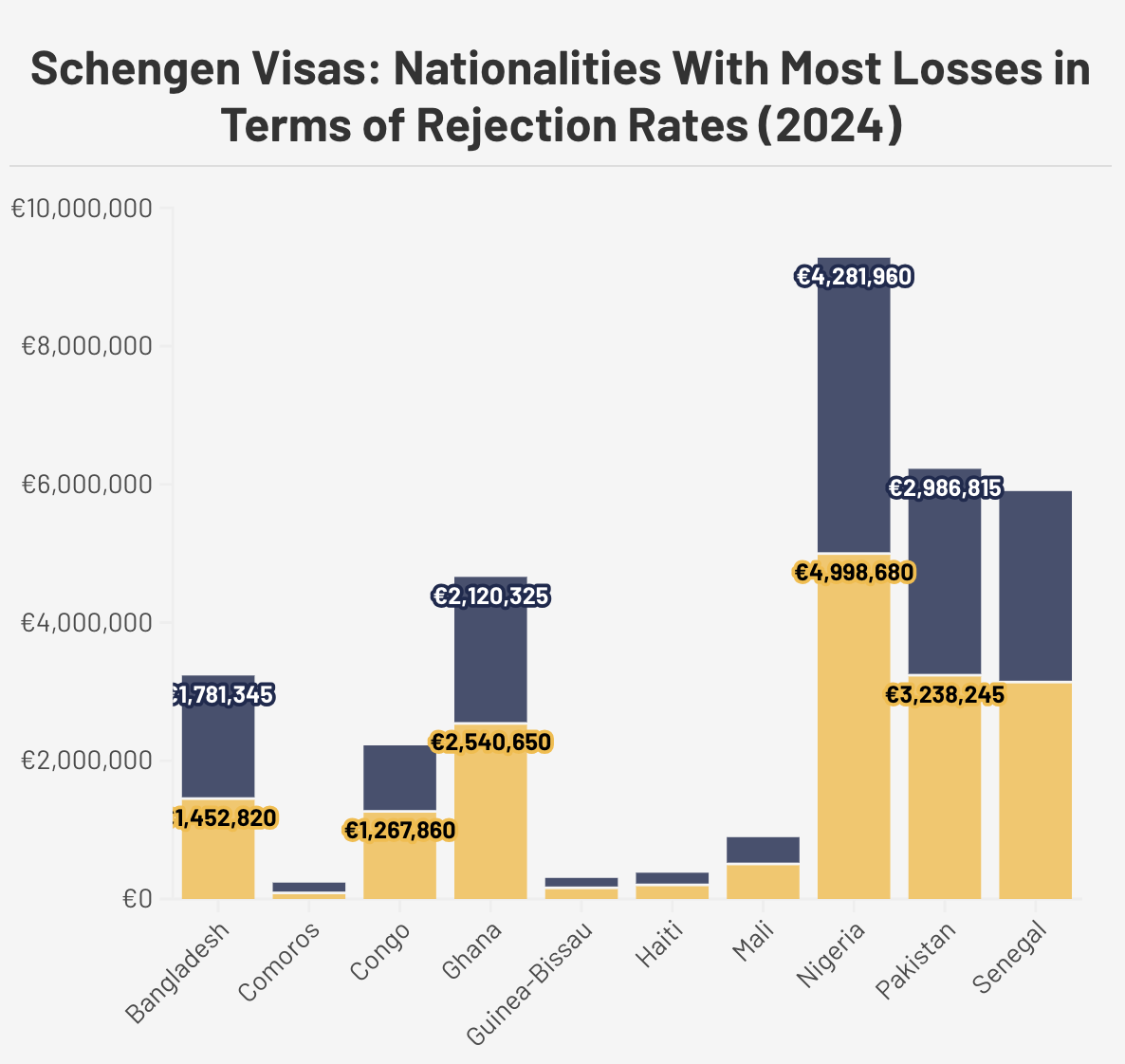€145 Million Lost on Rejected Schengen Visas in 2024: Who Pays the Price?

In 2024, the European Union rejected more than 1.7 million Schengen visa applications—costing applicants a staggering €145 million in lost fees. The record-high number of refusals sheds light on structural inequalities in EU visa policy, particularly affecting African and Asian nationals.
Millions of Applications, Millions in Losses
According to SchengenVisaInfo, 11.7 million Schengen visa applications were submitted in 2024—a 13.4% increase compared to 10.3 million in 2023. With the surge came more refusals: 1.7 million applications were denied, up 4.4% year-over-year.
On June 11, 2024, the EU increased the visa fee from €80 to €90. Averaging the annual fee to €85, the total loss on rejected applications amounted to €145 million—€14.3 million more than in 2023.
Nearly €1 Billion in Visa Revenue for the EU
The EU earned nearly €1 billion in visa revenue in 2024—€995.9 million, a 20.5% increase from €826 million in 2023. This growth was driven by both a higher number of applications and the fee hike.
Although absolute refusals rose, the rejection rate slightly declined from 15.8% in 2023 to 14.5% in 2024. Still, the financial burden of denials grew.

Who Bears the Highest Cost?
Applicants from Africa and Asia faced the greatest losses. For example:
- Algeria: 185,101 rejections, €15.7M lost
- Turkey: 170,129 rejections, €14.5M lost
- India: 165,266 rejections, €14M lost
- Morocco: 115,774 rejections, €9.8M lost
- Russia: 44,885 rejections, €3.8M lost
- Nigeria: €4.2M lost
In relative terms, Comoros topped the chart: 1,754 rejections out of 2,853 applications (61%) cost applicants €149,090.

EU Countries That Cashed In the Most
Countries with the highest number of visa applications—and revenues:
CountryApplicationsRevenue
- France3+ million€261.1 million
- Spain1.6 million€138.9 million
- Germany1.5 million€128.5 million
- Italy1.2 million€104.8 million
These four countries alone accounted for €633.5 million—over 63% of the EU’s total visa earnings in 2024.
Why It Matters
This growing disparity raises critical questions:
Why are applicants from the poorest countries bearing the heaviest costs?
How transparent and fair is the refusal process?
Should the EU introduce partial refunds for rejected applications?
As visa applications and rejections continue to rise, the EU faces growing pressure to rethink its approach. In a world of digital mobility and global interdependence, fairness and transparency in visa decisions are more important than ever.








